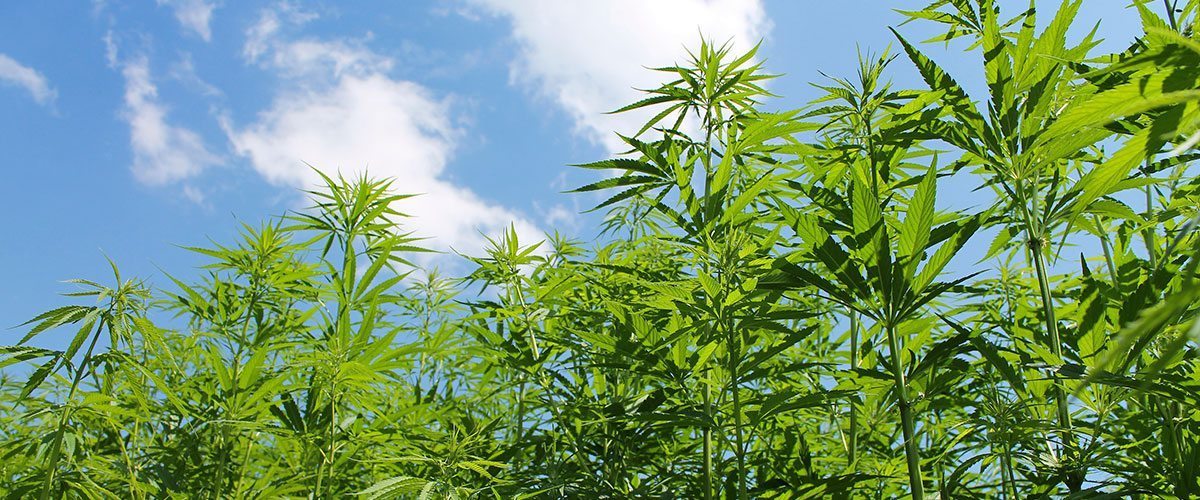[vc_row][vc_column][vc_column_text]
North Carolina farmers got the okay from the state attorney general’s office to obtain hemp seed from outside the state.
North Carolina’s attorney general’s office has given the North Carolina Hemp Commission permission to license farmers interested in acquiring industrial hemp seeds from outside the state. The North Carolina General Assembly legalized its hemp farming pilot program in 2015, and this approval gives farmers that have been licensed under the state’s hemp pilot program an avenue for sourcing domestic seed for their first season of crops.
Sandy Stewart, director of the Department of Agriculture and Consumer Services Research Stations Division and Vice Chairman of the Hemp Commission, indicated that farmers would likely begin planting hemp by the end of the month. The state-regulated pilot program is focused on eleven research objectives and participating growers are required to submit their findings to the Department of Agriculture.
“Every farmer who grows hemp needs to address one or more of those objectives and turn over the information to the universities at the end of the year,” Stewart told the Southeast Farm Press. “We’re doing this so we can learn more about the crop.”
Some North Carolina growers have already obtained certified seeds from Schiavi Seeds in Lexington, Kentucky. The company’s owner, Andrea Schiavi, has said one particular variety of hemp his company produces, Carmagnola Selezionata, is well suited for the climate and growing conditions in North Carolina.
“The best approach is to plant only certified seed for growers and for research. Certified seed is important for guaranteeing quality to growers and making sure the THC levels are below 0.3 percent allowed by law,” said Schiavi.
“It gives security and stability both to growers and to law enforcement agencies. Whenever somebody grows certified industrial hemp the THC is well below the THC level of marijuana. Our varieties, being European, are certified, bred and maintained to have a THC level below 0.2 percent which is mandated by law in Europe,” he added.[/vc_column_text][/vc_column][/vc_row][vc_row][vc_column][vc_single_image image=”17298″ img_size=”1200×250″ onclick=”custom_link” img_link_target=”_blank” link=”https://www.medicalmarijuanainc.com/why-do-we-refer-to-hemp-as-industrial-hemp/”][/vc_column][/vc_row][vc_row][vc_column][vc_column_text]Despite hemp’s long cultivation history, the best agronomic practices of producing hemp have been lost due to decades of prohibition. It had been illegal under federal law to grow hemp until the 2014 Farm Bill, which gave states the authorization to pass hemp legislation for pilot and research purposes. Growers in the United States are now re-learning how to best handle the crop, which can be used for paper, textiles, food, building materials, and nutritional supplements.
“Dealing with this crop, even though we haven’t had a crop in the field, has been more complicated because of the regulatory nature of it. Where it falls under federal law and state law is complicated. Once we cross those hurdles, it’s not going to be completely straightforward either because we have to get some experience, we have to learn some things,” said Stewart.
Stewart believes the future for industrial hemp in North Carolina is bright. Because federal legislation doesn’t currently allow hemp farming for commercial purposes, as of now nearly all domestically sold hemp products utilize imported rather than domestically grown hemp. However, the demand for the plant’s seed and fiber is growing. A recent report from Hemp Business Journal and Vote Hemp estimate the total retail value of hemp sold in the U.S. in 2016 was $688 million, up from $573 million in 2015.
“The infrastructure to handle the harvested crop is fairly limited in 2017, but if the market develops as people say it will, that will come in due time,” said Stewart.
Learn more about hemp and its products by visiting our education page. Keep up with the latest developments in the U.S. cannabis industry through our news feed.[/vc_column_text][/vc_column][/vc_row]






